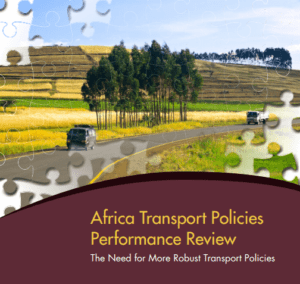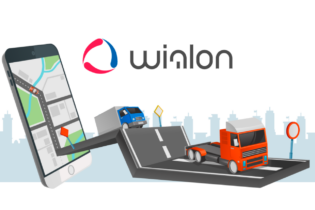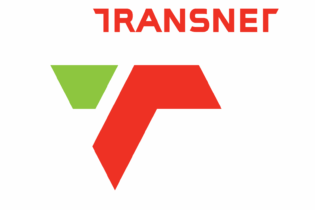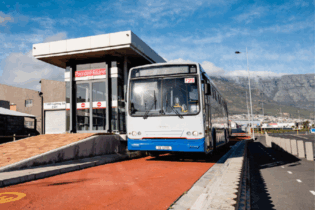The following is an extract taken from the Africa Transport Policies Performance Review, compiled by Justin Runji of the SSATP.
The recorded sustained economic growth in Africa can be attributed to, inter alia, some notable transport sector policies that have been implemented in the last two decades. Such policies include road sector reforms, rail concessions, port reforms, multi-country and regional trade and transport facilitation initiatives.These reforms have had a positive impact in terms of improved accessibility, improved service delivery, and reduction of public sector fiscal burden. However, coupled to these gains, some post-reform shortcomings have been identified, the effect of which, in the main, have been to impede transportation efficiency and competitiveness. As a result, transportation costs in Africa have not significantly improved. Road network management and road maintenance funding have moved out of the generally bureaucratic public sector to more inclusive and commercially oriented regimes, the outcome being a significant improvement in the condition of inter-urban road networks in many countries. Policy implementation concerns in the road sector reform include revenue stagnation and misapplication of scarce resources. While the existence and the role of government entities to manage railways, ports, and aviation has been generally acknowledged, the same cannot be said about the relatively new post-reform road sub-sector institutions. In some countries, their corporate governance structures and operational autonomy have been undermined. Road safety remains a major challenge and the probability of a road crash fatality is highest in Africa. Road fatality per 100,000 population stands at 24.1 – the highest in the world and the projections by WHO are that fatalities would increase by 112% to more than half a million by 2035. Most of the railways in sub-Saharan Africa have undergone some form of restructuring that typically involved the introduction of private sector management and operations, through long-term concessions or management contracts. The reforms, however imperfect, have in most cases succeeded in reducing or eliminating the fiscal burden of inefficient operations on public finances. Moreover, railways in countries that have undergone reforms and introduced private sector operation continue to operate. In countries that have not undergone similar reforms, railway operations have been on a steady decline or ceased to operate. It has been noted that mainly due to overoptimistic pre-concession performance projections, the private sector continues to grapple with low profitability, while public officials’ discomfort in the lack of recapitalisation by the private sector has led, in the extreme of cases, to unilateral discontinuation of concessions. In the ports, the main points of entry of regional corridors, concessioned terminals may have in general improved their operations efficiency but overall, market forces have not succeeded in significantly improving cargo dwell time and costs remain high. In addition, regional transit corridor efficiency is still hampered to a large extent, by non-infrastructure related barriers and poor logistics. Sub-Saharan Africa countries have embraced the need for developmental partnerships with the private sector through public-private partnerships (PPP). Transport modes such as railways and ports have been entry points mainly for service provision. The need for substantial capital outlays for transport infrastructure development, coupled with marginal traffic volumes have been notable disincentives for private sector participation, particularly in road development. The need for more robust policy and institutional framework to safeguard the interests of parties, and the capacity within the public sector to manage the processes will be critical to the success of the process going forward. Other policy implementation challenges include emerging realities such as climate change, rapid urbanisation, and the role of information and communication technology (ICT), in addition to the already existing topical issues such as gender equity, HIV/AIDS, employment creation and safety. At the same time, internal inadequacies such as poor monitoring and evaluation (M&E), lack of skills and state capture, act as subtle policy drags to transport authorities. In view of the above and against the backdrop that Africa’s transportation prices are still the highest in the world, there is an urgent need for a deep introspection by Africa’s transport policy-makers, first to address the internal administrative weaknesses, second to hone the ongoing reforms, and third to introduce more transformational policy objectives.This review suggests some specific steps in relation to these aspects as well as a performance-monitoring framework. The common thread running through the messages in the document is that plugging the transport infrastructure gaps – a primary focus of most transport strategies, will in itself not significantly improve the continent’s competitiveness. Corresponding continuous efforts are required at country, regional and continental levels to address the softer policy aspects of transport.
Most of the needed policy reforms do not imply significant fiscal burden and yet they are preconditions to fully unleashing the benefits of the investments in the sector. Only these efforts will address the accessibility gap in a sustainable manner necessary to support the growing economies in Africa. After several years of notable economic growth, policy-makers in Africa face the challenge of sustaining this momentum by continuously adapting policies to a changing environment. Recent GDP growth in Africa has been over 5% per annum. The continent has shown resilience during the 2009 economic downturn with 4.5% GDP growth in 2010 and more than 5% growth in 2011. New partners are adding to the optimistic outlook for the continent, in terms of trade and development finance. Universally recognised prospects for Africa’s continued economic growth have bolstered the continent’s trade positioning and enhanced strategic status among global partners. This, in turn, has fostered the institutional build-up for policy harmonisation, economic integration and decision-making at the continental level. This good economic performance has benefited from policy reforms in the transport sector over the last 20 years. Notable among such reforms were the introduction of dedicated road agencies and road funds managed by road fund boards or secretariats, the restructuring of railways and ports, and the introduction of private sector management in their operations. Multi-country corridor agencies have also emerged to promote multimodal transport and improve performance along key transit corridors. These reforms have generally resulted in improved infrastructure, connectivity and accessibility, which in turn have contributed towards economic growth. While transport has made its contribution towards African growth, the overall intermediate outcomes at sector level, in comparison to the rest of the world, remain characterised by high costs and sub-optimal services. These reforms have generally resulted in improved infrastructure, connectivity and accessibility, which in turn have contributed towards economic growth. While transport has made its contribution towards African growth, the overall intermediate outcomes at sector level, in comparison to the rest of the world, remain characterised by high costs and sub-optimal services. These reforms have generally resulted in improved infrastructure, connectivity and accessibility, which in turn have contributed towards economic growth. While transport has made its contribution towards African growth, the overall intermediate outcomes at sector level, in comparison to the rest of the world, remain characterised by high costs and sub-optimal services. With international transport costs estimated at 12.6% of the delivered value of exports, African countries pay more than twice the world average of 6.1%. Key factors that contribute to higher transport costs include low productivity of the trucking industry mainly due to infrastructure constraints, low competition between service providers, and weak logistics infrastructure. Furthermore, transport sector development prospects are beset by a number of emerging realities such as accelerating urbanisation and climate change. Economic growth has resulted in a rapid increase in vehicular traffic, which in turn has brought about crippling urban congestion. These negative spin-offs are a reflection of the inadequacy of policy frameworks, and a weak capacity to manage the environmental, social and safety risks of motorisation. Climate change characterised by extreme weather events has disrupted transport operations in Africa. These negative spin-offs are a reflection of the inadequacy of policy frameworks, and a weak capacity to manage the environmental, social and safety risks of motorisation. Climate change characterised by extreme weather events has disrupted transport operations in Africa. At the same time, rapid urbanisation and growing motorisation rates will increase Africa’s contribution to greenhouse gas emissions. Transport is important as an enabler of development. Within the global development objective of ending extreme poverty and promoting shared prosperity, the transport sector is regarded as essential to development efforts. ConclusionThe achievements of past transport policies are a first step toward engaging in a future in which Africa will change rapidly and its economy will grow quickly. Transport policies need to evolve alongside these changes, ensuring that transport is a strong contributor to economic development. In particular, although the focus in the past has been on reducing infrastructure gaps, a greater goal of transport policies would be to address the accessibility gap where infrastructure and services join forces to help economies grow. The impact on transport users stems from how the infrastructure is used and not from the infrastructure itself. For this, good policies are essential because they lead to both good infrastructure and good use of the infrastructure.








